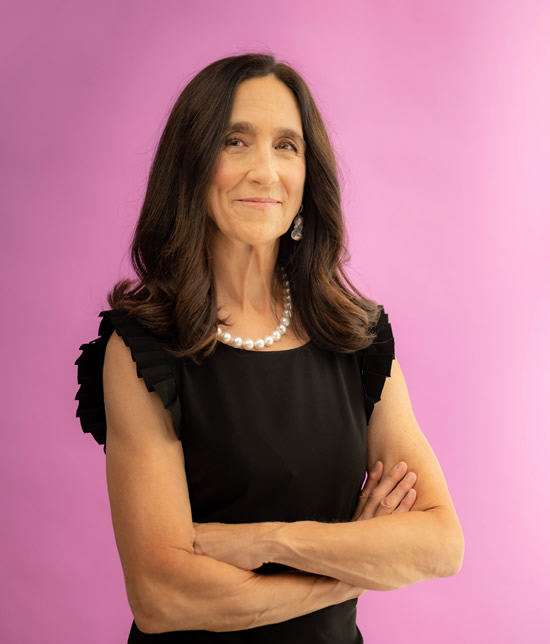Making Connections to Make Careers

By Breajna Dawkins
When Jane DiRenzo Pigott supports a cause, the Northwestern University trustee’s goal is to make her support transformative.
“I always push for an articulation of return on investment when I make a philanthropic contribution,” Pigott explains. “I want to have an impact that is sustainable and matters.”
Pigott achieved her earliest Northwestern impact when she and her late husband supported a Northwestern team (Howard Wolinsky, John Philip Phair, and Robert Leo Murphy) researching and treating AIDS early in the crisis. The impact of this investment is still being felt today. “We wanted to be part of the solution” she says, “and that meant investing in the medical research being done in Chicago, since at the time, medical research was almost solely funded by the National Institutes of Health and the money was only going to the two coasts.”
It’s also how she operated professionally during her 20 years as a litigator and beyond: winning multiple awards for the diversity program she championed while with the Winston & Strawn law firm; starting a consulting business that partners with professional service firms on talent solutions, typically involving diversity, inclusion, equity, and access; and maintaining seats on multiple boards, including the Lyric Opera of Chicago, where she was the first chair of its IDEA (inclusion, diversity, equity, and access) steering committee.
“I sit on not-for-profit and for-profit boards in leadership roles that, in addition to focusing on the strategic issues with a fiduciary lens, provide me with the opportunity to live my equity and access values by being the first woman to do a lot of things, thereby breaking that barrier,” Pigott shares. “It’s been very rewarding.”
In her latest philanthropic pursuits, she is spending more time with her family exploring the arts and culture scene of her new home base of Park City, Utah. “I fundamentally believe that the arts are a material part of human wellness, just like nutrition and exercise,” says Pigott, who has children’s theater season tickets with her grandchildren, enjoys the symphony and opera family series, and has a membership at every museum in the area, financially supporting the institutions that they patronize.
So when she met professor and future dean E. Patrick Johnson on a flight to Doha, Qatar more than a decade ago and got to know him, she recognized his passion for the next generation of artists and realized she had an opportunity to support his vision for creating meaningful change.
“I read his book Sweet Tea: Black Gay Men of the South—An Oral History, heard his innovative academic perspective, and appreciated his investment in teaching,” Pigott says. “So when he became dean, I was thrilled and asked how I could help.”
Johnson suggested that she host a reception for School of Communication students and alumni during the 2024 Sundance Film Festival. Pigott welcomed the opportunity.
“The dean was committed to providing the Sundance experience to students in a way that ensured equity and access but also shone a spotlight on Northwestern’s excellence,” she says. “He had a lot of ideas that focused on students first and then on forming a relationship with the Sundance Film Festival.”
Pigott curated an evening event that allowed Wildcats past and present to connect over food and drink while sharing tips on how to live their art, learn their craft, and understand what their next career steps might be.
“The setting allowed the alumni who had films at Sundance to have a real conversation with the current seniors, who wanted to be everything from filmmakers to lighting directors,” Pigott says. “Both groups were very interested in sharing secrets and connecting with each other in a fundamental way.” By the end of the gathering, the students were not only inspired but excited about their future. “It was a privilege to watch the next generation in this industry create connections with each other,” she adds.
“I would do it again in a heartbeat because there was so much return on investment,” Pigott says. “I think each of the seniors left with a more realistic idea of what they were going to do when they graduated and the types of sacrifices they were going to have to make to succeed. Plus, the enthusiasm and success of the recent graduates, who were the alumni at the event with films at the festival, inspired us all.
“Who knows how many connections were made in that room that will become an important part of what they all do next,” she adds. “It was very cool. Just another example of Dean Johnson in action.”
